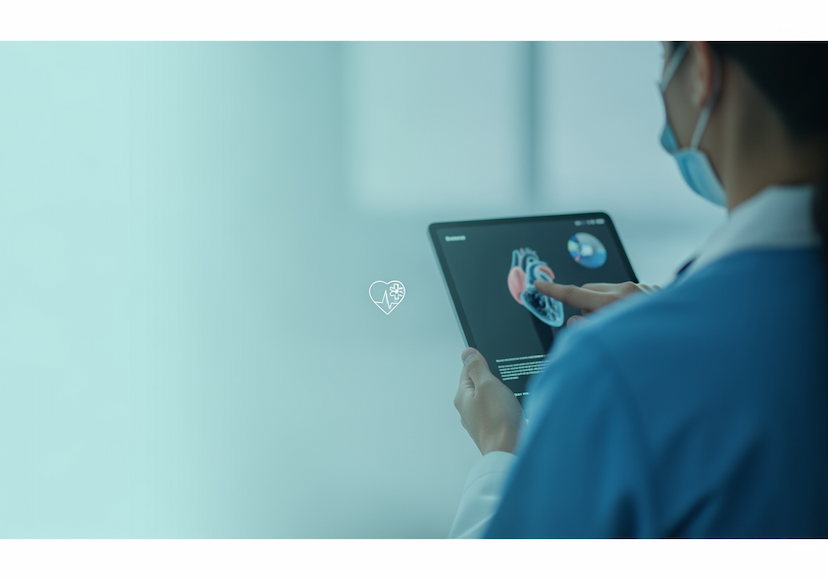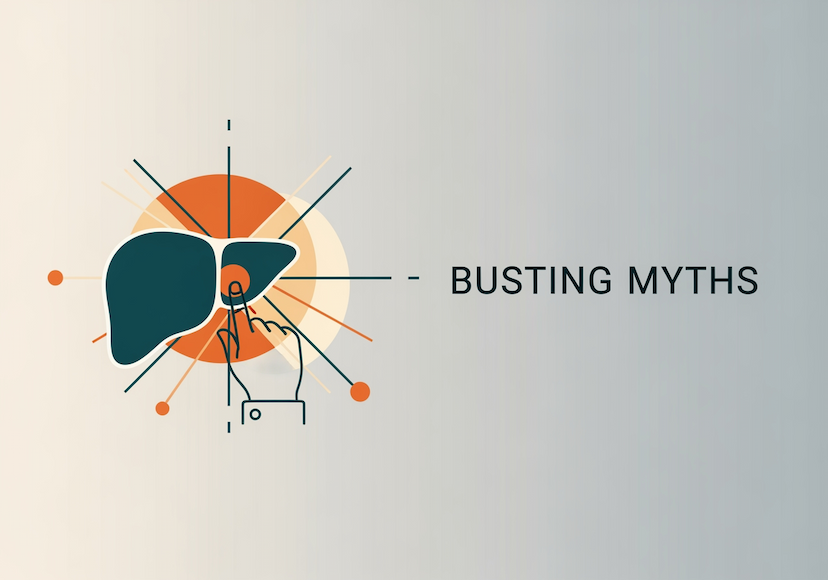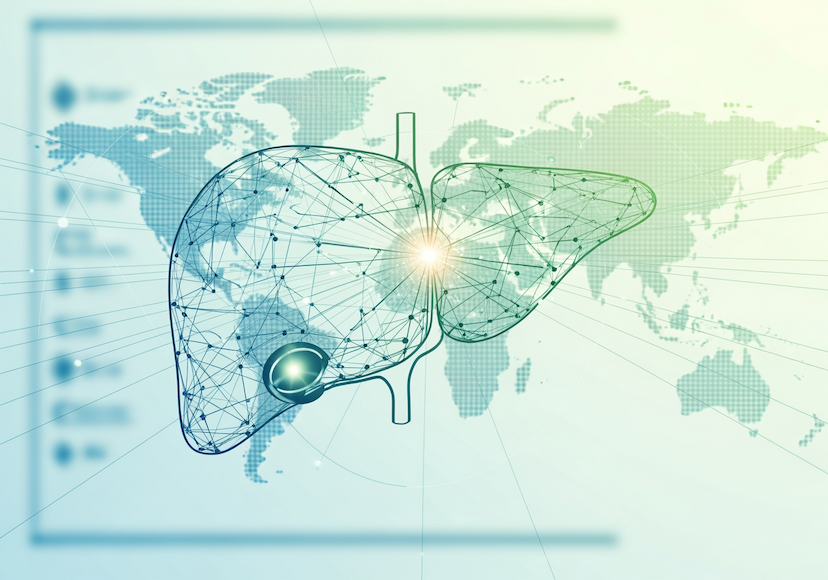
Top Pre-Surgery Tests Required for Liver Transplant
15 Nov, 2025
 Healthtrip
HealthtripComprehensive Blood Tests
A comprehensive suite of blood tests forms the cornerstone of the pre-transplant evaluation. These tests provide a detailed snapshot of your overall health, liver function, and any underlying medical conditions. Liver function tests (LFTs), like ALT and AST, assess the degree of liver damage and inflammation. Coagulation tests, such as prothrombin time (PT) and international normalized ratio (INR), evaluate your liver's ability to produce clotting factors, crucial for preventing excessive bleeding during and after surgery. A complete blood count (CBC) checks for anemia, infection, and other blood disorders. Electrolyte levels, such as sodium and potassium, are also monitored to ensure proper balance. These blood tests are like detectives, uncovering vital clues about your health status and potential risks. At Healthtrip, we understand the anxiety surrounding these tests. Let us ease your burden by connecting you with trusted labs and experienced medical professionals at hospitals like Saudi German Hospital Cairo to ensure accurate and timely results.
Most popular procedures in India
Imaging Studies
Imaging studies offer a visual roadmap of your liver and surrounding organs, allowing doctors to assess their size, shape, and condition. Ultrasound, CT scans, and MRI are commonly used techniques. Ultrasound is non-invasive and uses sound waves to create images of the liver, gallbladder, and bile ducts. CT scans provide detailed cross-sectional images of the abdomen, helping to identify tumors, abscesses, or other abnormalities. MRI offers even greater detail, particularly useful for evaluating blood vessels and liver structure. These imaging studies not only helps in diagnosis but also assists surgeons like Dr. (mention a doctor's name if available) at Vejthani Hospital with precise planning. They're like having an inside look, allowing doctors to navigate the complexities of your anatomy. Healthtrip works with hospitals that offer top-notch imaging technology, ensuring you receive the most accurate and comprehensive assessment possible. These hospitals include Vejthani Hospital and Yanhee International Hospital.
Cardiac Evaluation
A healthy heart is essential for a successful liver transplant. The transplant process can put significant stress on the cardiovascular system, so a thorough cardiac evaluation is necessary to identify any pre-existing heart conditions. This typically includes an electrocardiogram (ECG) to assess heart rhythm, an echocardiogram to evaluate heart structure and function, and possibly a stress test to assess how your heart responds to exercise. If you have risk factors for heart disease, such as high blood pressure or high cholesterol, you may need additional testing, such as a coronary angiogram. Think of this cardiac evaluation as a safety check, ensuring your heart is strong enough to handle the demands of surgery and recovery. Healthtrip understands that heart health is paramount. We connect you with leading cardiologists at hospitals such as Fortis Escorts Heart Institute who can comprehensively evaluate your cardiac function and optimize your heart health before your transplant.
Wellness Treatments
Give yourself the time to relax
Lowest Prices Guaranteed!

Lowest Prices Guaranteed!
Pulmonary Function Tests
Just as a healthy heart is crucial, so are healthy lungs. Pulmonary function tests (PFTs) assess how well your lungs are working. These tests measure lung capacity, airflow, and how efficiently oxygen moves from your lungs into your bloodstream. PFTs are particularly important for individuals with chronic lung conditions, such as COPD or asthma, or those who have a history of smoking. The transplant process can increase the risk of respiratory complications, so it's crucial to identify and address any pre-existing lung issues. Spirometry, a common PFT, involves breathing into a device that measures lung volume and airflow. These tests help to identify any issues that might affect your breathing during and after the transplant and help tailor your care accordingly. Healthtrip partners with pulmonologists at reputable hospitals like Memorial Bahçelievler Hospital to ensure your lungs are in the best possible shape for a successful transplant.
Psychological Evaluation
Undergoing a liver transplant is a major life event, both physically and emotionally. A psychological evaluation is an essential part of the pre-transplant assessment. This evaluation helps to assess your emotional readiness for the transplant, your understanding of the procedure and its potential risks and benefits, and your ability to cope with the stress and challenges of recovery. It also helps to identify any underlying mental health conditions, such as depression or anxiety, that may need to be addressed before the transplant. The transplant team wants to ensure you have the psychological support and coping skills necessary to navigate this complex process. This evaluation is not about judging you; it's about providing you with the resources and support you need to thrive. Healthtrip understands the importance of mental well-being and connects you with experienced therapists and counselors at facilities like NPISTANBUL Brain Hospital who can provide compassionate support throughout your transplant journey.
Where to Get Pre-Liver Transplant Tests
Embarking on the journey toward a liver transplant is a significant step, and understanding the landscape of medical facilities offering pre-transplant testing is paramount. The good news is that numerous reputable hospitals and specialized transplant centers across the globe are equipped to conduct these crucial evaluations. For instance, within Healthtrip's network, institutions like Fortis Memorial Research Institute in Gurgaon, India, and Max Healthcare Saket in New Delhi, India, stand out for their comprehensive liver programs and advanced diagnostic capabilities. Similarly, international options such as Memorial Sisli Hospital in Istanbul, Turkey, and Vejthani Hospital in Bangkok, Thailand, are well-regarded for their transplant expertise and patient-centric approach. When selecting a facility, consider factors like the hospital's experience with liver transplants, the availability of cutting-edge technology, the expertise of the medical team, and, of course, the overall cost and accessibility. Remember, pre-transplant testing involves a series of complex evaluations, so choosing a center with a proven track record and a commitment to patient well-being is essential for a smooth and informed process. Don't hesitate to explore multiple options, ask detailed questions, and compare the services offered before making your final decision. Healthtrip can assist you in navigating these choices, connecting you with the right medical professionals and facilities that align with your specific needs and circumstances. Some other hospitals include Saudi German Hospital Cairo, Egypt, which offers comprehensive pre-transplant testing services, and NMC Specialty Hospital, Al Nahda, Dubai, known for its advanced diagnostics. Evaluating these options ensures you receive thorough and accurate assessments, paving the way for a successful transplant journey.
Why Pre-Transplant Tests Are Crucial
Pre-transplant testing is not just a formality; it's the cornerstone of a successful liver transplant. Think of it as laying the foundation for a new and improved life. These tests serve multiple vital purposes, acting as a detailed roadmap for the transplant team. First and foremost, they meticulously assess the severity of your liver disease, providing a definitive picture of the extent of the damage and how urgently you need a transplant. This assessment helps prioritize patients on the transplant waiting list, ensuring that those in the most critical condition receive timely intervention. Secondly, these tests thoroughly evaluate your overall health, identifying any potential risks or underlying conditions that could impact the transplant's success. This includes screening for infections, assessing cardiovascular health, evaluating kidney function, and checking for any signs of cancer. By identifying these potential problems upfront, the medical team can develop strategies to manage them effectively, minimizing complications and maximizing the chances of a positive outcome. Thirdly, pre-transplant testing helps determine if you are a suitable candidate for a liver transplant in the first place. Not everyone with liver disease is an ideal candidate, and these tests help ensure that you are healthy enough to withstand the rigors of surgery and the subsequent immunosuppressive therapy. The results essentially paint a complete picture, enabling the medical team to tailor a personalized treatment plan that addresses your unique needs and maximizes your chances of long-term survival. Healthtrip understands the importance of this step, and we aim to support you in accessing the testing you need to proceed confidently. Skipping or underestimating the value of pre-transplant testing is like embarking on a long journey without a map – you're setting yourself up for potential detours and unexpected challenges. Embrace the process, ask questions, and trust that these tests are ultimately designed to protect your health and improve your future.
Who Needs Pre-Transplant Testing?
If you've been diagnosed with end-stage liver disease or a severe liver condition that's no longer responding to conventional treatments, pre-transplant testing is likely in your future. But let’s break it down a bit further. Generally, individuals with conditions like cirrhosis, chronic hepatitis, autoimmune liver diseases, primary biliary cholangitis (PBC), primary sclerosing cholangitis (PSC), or liver cancer (hepatocellular carcinoma) might be considered for a liver transplant. However, the decision to proceed with pre-transplant testing isn't solely based on the diagnosis. Factors like the severity of your symptoms, the impact of the disease on your quality of life, and your overall health status all play a crucial role. Your doctor will evaluate your condition based on established scoring systems like the Model for End-Stage Liver Disease (MELD) score or the Child-Pugh score, which assess the severity of liver disease and predict survival. If your score indicates significant liver dysfunction and a high risk of mortality, you'll likely be referred for pre-transplant evaluation. Importantly, even if you don't have one of the "classic" liver diseases, but your liver is severely damaged and failing, you might still be a candidate for testing. This could include cases of acute liver failure due to drug overdose, viral infections, or other rare conditions. Ultimately, the decision to undergo pre-transplant testing is a collaborative one between you and your medical team. They'll carefully consider your individual circumstances, weigh the potential benefits and risks of a transplant, and determine if you're likely to benefit from this complex procedure. Remember, seeking a second opinion is always a good idea, and Healthtrip can help connect you with experienced liver specialists who can provide further guidance and expertise. So, If a doctor thinks a transplant might be necessary they will likely start this testing, and it is important to follow what they advise and go through with the necessary testing. This will determine if you are a viable candidate.
Also Read:
Types of Pre-Transplant Tests
Embarking on the journey toward a liver transplant can feel like navigating a complex maze, and pre-transplant testing is a crucial part of that journey. Think of these tests as a comprehensive health review, designed to ensure that a transplant is the safest and most effective option for you. These aren't just routine check-ups; they're in-depth evaluations that paint a detailed picture of your overall health, your liver's condition, and your suitability for surgery. The types of tests can vary depending on your individual circumstances and the transplant center's protocols. Commonly, you can expect a battery of blood tests to assess liver function, kidney function, blood clotting ability, and to screen for infections like hepatitis and HIV. Imaging tests, like ultrasounds, CT scans, or MRIs, provide visual assessments of the liver's structure and any abnormalities present. Cardiac evaluations, such as EKGs and echocardiograms, check the health of your heart, ensuring it's strong enough to withstand the surgery. Pulmonary function tests assess your lung capacity and overall respiratory health. Psychological evaluations are also a part of the process, helping to determine your emotional readiness for the transplant journey and your ability to adhere to the strict post-transplant medication regimen. These tests, conducted at centers like Fortis Memorial Research Institute, Gurgaon (https://www.healthtrip.com/hospital/fortis-memorial-research-institute) or Memorial Sisli Hospital (https://www.healthtrip.com/hospital/memorial-sisli-hospital), are a critical step to improve the odds of a successful transplant.
Also Read:
How to Prepare for Pre-Transplant Testing
Preparing for pre-transplant testing doesn't need to be a daunting task. Think of it as gearing up for a marathon, not a sprint. First and foremost, communicate openly and honestly with your healthcare team. They'll provide specific instructions tailored to your individual needs and the tests you'll be undergoing. Generally, you will want to gather all relevant medical records, including past test results, medication lists, and details of any previous surgeries or hospitalizations. This information helps your doctors build a comprehensive picture of your health history. Make sure you understand any fasting requirements for blood tests. Typically, you might need to avoid food and beverages (except water) for a certain period before the test. If you're taking any medications, including over-the-counter drugs and supplements, inform your transplant team. Some medications may need to be adjusted or temporarily stopped before testing. Arrange for transportation to and from the testing center, especially if you're undergoing procedures that might affect your ability to drive. Centers like Vejthani Hospital (https://www.healthtrip.com/hospital/vejthani-hospital) and Saudi German Hospital Cairo, Egypt (https://www.healthtrip.com/hospital/saudi-german-hospital-cairo) offer support to help you with this. On the day of your tests, wear comfortable clothing and be prepared to answer questions about your medical history. Bring a list of questions you have for your healthcare team. Knowing what to expect can alleviate anxiety and help you feel more in control. Remember, your health and well-being are the top priority throughout this process.
Also Read:
Examples of Test Results and Their Implications
Understanding what your pre-transplant test results mean can empower you to be an active participant in your healthcare journey. Let's look at some examples. Liver function tests (LFTs), such as ALT and AST, measure enzymes released when liver cells are damaged. Elevated levels could indicate ongoing liver inflammation or damage. Blood tests also assess kidney function through creatinine and BUN levels. Abnormal results could suggest kidney problems, which need to be addressed before a transplant. Blood clotting tests, like PT/INR, evaluate how well your blood clots. Impaired clotting ability can increase the risk of bleeding during and after surgery. Viral screenings check for infections like hepatitis B and C, HIV, and CMV. If positive, these infections need to be managed before a transplant to prevent complications. Cardiac evaluations, such as an echocardiogram, assess the health of your heart. A weak heart could increase the risks associated with a major surgery like liver transplantation. Psychological evaluations assess your mental and emotional readiness for the transplant process. Factors like anxiety, depression, or substance abuse can impact your ability to adhere to medication and aftercare. These are just a few examples, and the specific implications of your test results will depend on your individual circumstances. For example, abnormal results might not automatically disqualify you from a transplant, but they will help your transplant team tailor a treatment plan to optimize your health. Hospitals like Fortis Shalimar Bagh (https://www.healthtrip.com/hospital/fortis-shalimar-bagh) and Quironsalud Hospital Murcia (https://www.healthtrip.com/hospital/quironsalud-hospital-murcia) have multidisciplinary teams that can interpret these results and guide you through the next steps.
Also Read:
Conclusion
Navigating the pre-liver transplant testing phase can feel overwhelming, but remember that it's a vital step towards a healthier future. The tests provide crucial information for your transplant team to assess your suitability for surgery and tailor a treatment plan that maximizes your chances of success. Open communication with your healthcare providers is key. Don't hesitate to ask questions, express concerns, and seek clarification on anything you don't understand. Preparation is also essential. Follow your doctor's instructions carefully, gather all necessary medical records, and arrange for transportation and support. The emotional and psychological aspects of this journey are just as important as the physical ones. Consider seeking support from family, friends, or a therapist to cope with the stress and anxiety. With the right information, preparation, and support, you can navigate the pre-transplant testing process with confidence. Healthtrip is here to help you connect with top-tier transplant centers like Memorial Bahçelievler Hospital (https://www.healthtrip.com/hospital/memorial-bahcelievler-hospital) and Singapore General Hospital (https://www.healthtrip.com/hospital/singapore-general-hospital), access expert medical opinions, and find the resources you need to make informed decisions about your health. Remember, you're not alone on this journey. Healthtrip is your partner in navigating the path towards a successful liver transplant.
Related Blogs

Latest Global Innovations in Plastic Surgery Now Available in India
Explore evaluations, innovations, hospital comparisons, and global success insights for

How Healthtrip Ensures Evidence-Based Care in Plastic Surgery
Explore evaluations, innovations, hospital comparisons, and global success insights for

Success Rates of Plastic Surgery in India Compared to Other Countries
Explore evaluations, innovations, hospital comparisons, and global success insights for

Complete Medical Evaluation Process Before Plastic Surgery
Explore evaluations, innovations, hospital comparisons, and global success insights for

Common Myths About Liver Transplant Doctors Bust Them
Explore evaluations, innovations, hospital comparisons, and global success insights for

How Healthtrip Coordinates Cross-Border Medical Records for Liver Transplant
Explore evaluations, innovations, hospital comparisons, and global success insights for










